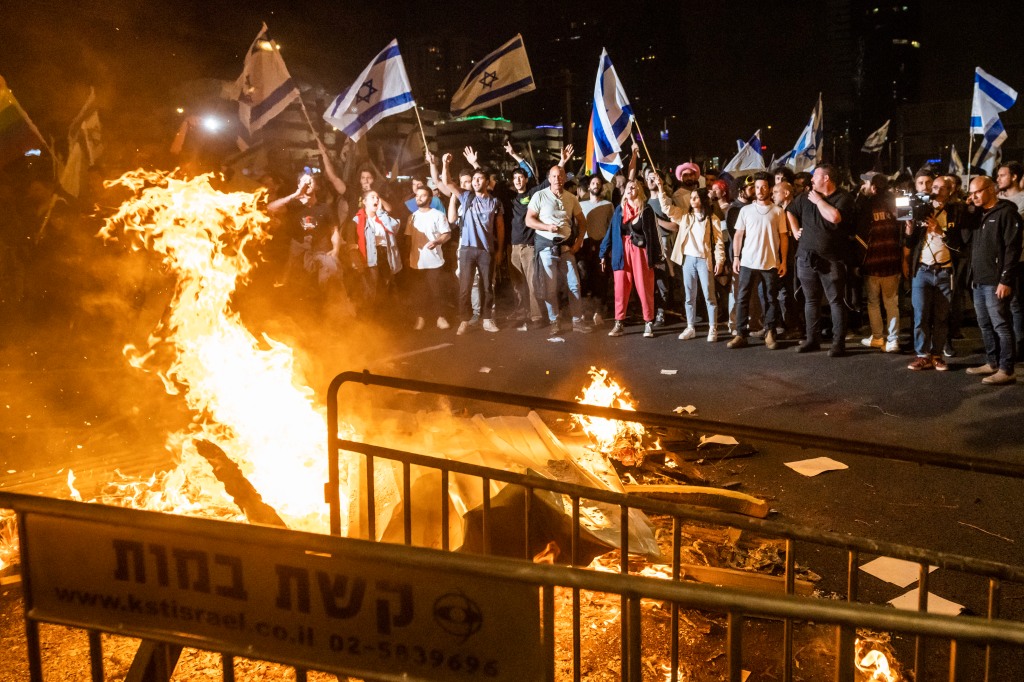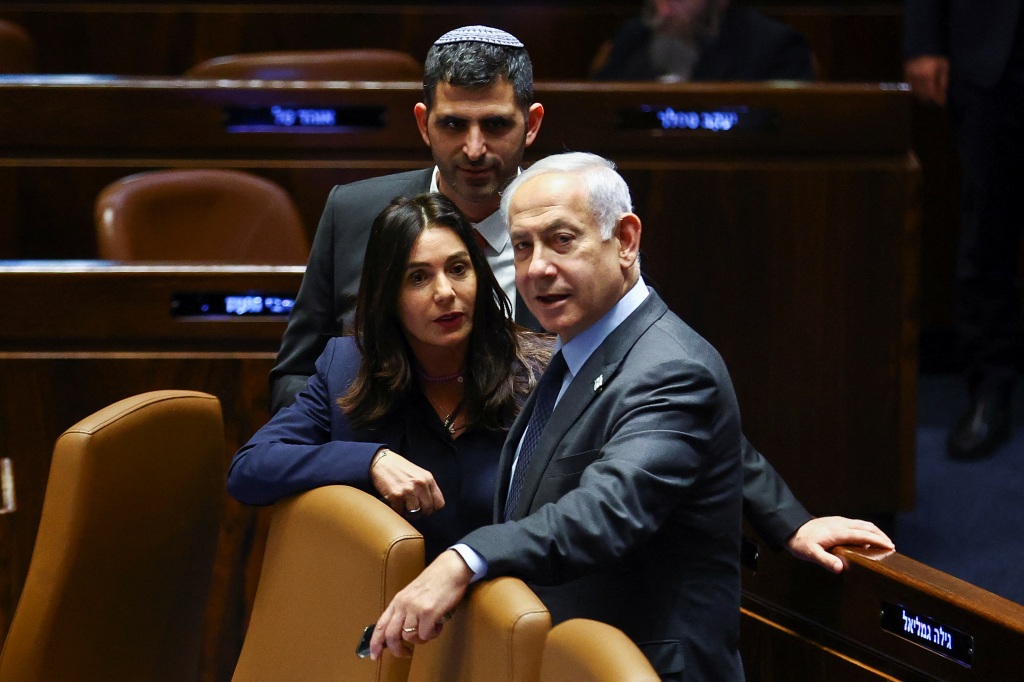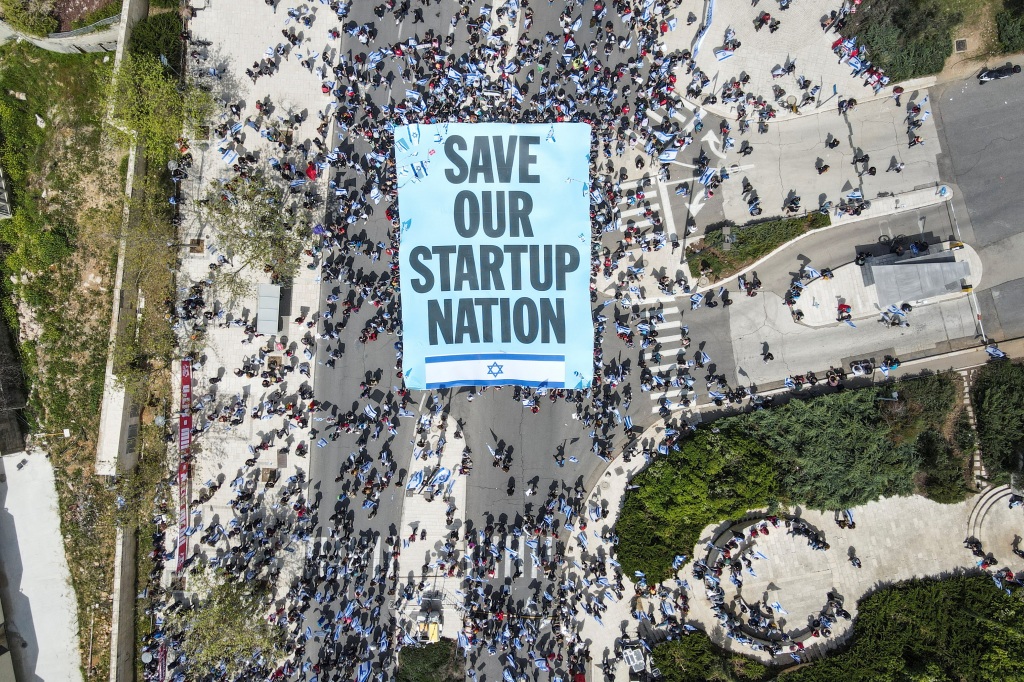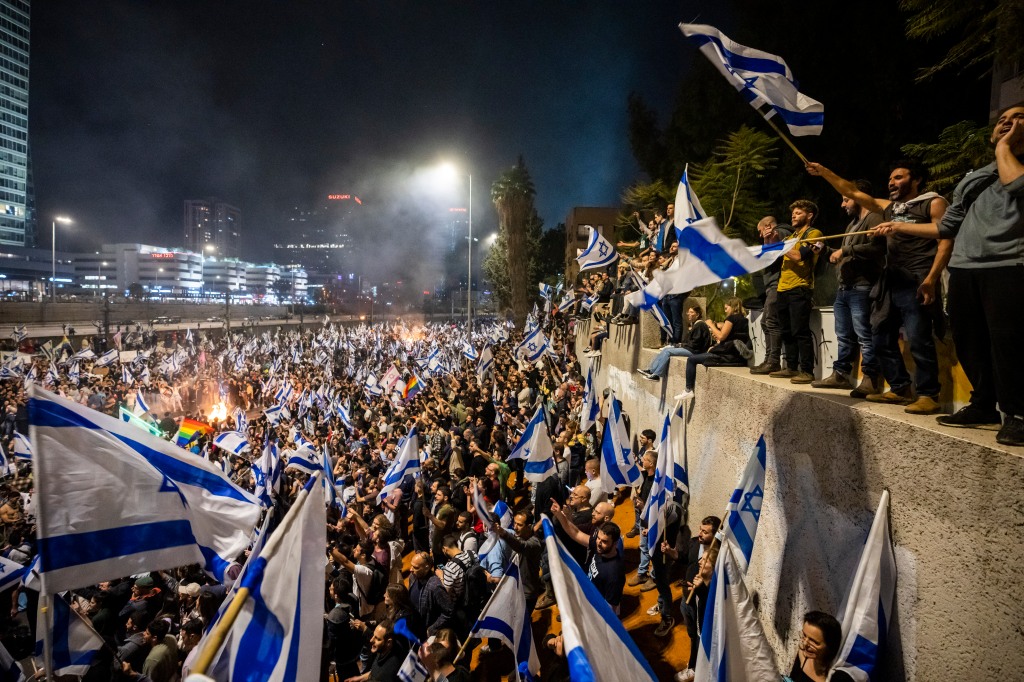Netanyahu pauses judicial overhaul legislation post protests
Israeli Prime Minister Benjamin Netanyahu will delay his coalition’s controversial judicial overhaul legislation until next month, officials said Monday following a raucous night of protests and a general nationwide strike.
National Security Minister Itamar Ben-Gvir said he agreed to a delay in the contentious piece of legislation until parliament reconvenes for its summer session on April 30.
Israel’s parliament will go on recess for Passover next week.
The extension would allow for a compromise to be met with the political opposition, Ben-Gvir said, noting if a deal isn’t reached the plan would still move forward during the summer session.
Netanyahu himself has not yet confirmed the delay.
Tens of thousands have taken to the streets in Tel Aviv, Beersheba, Haifa and Jerusalem for two days as they look to halt Netanyahu’s plan to overhaul the judiciary.

Some lit bonfires on Tel Aviv’s main highway, bringing traffic to a standstill, while other protesters were hosed down by water cannons. As the unrest escalated, protesters who gathered outside Netanyahu’s home broke through a security cordon.
Demonstrations come as Israel’s largest trade union Histadrut called for a general strike — stopping everything from medical services to flights, schools and even McDonald’s restaurants.
The government claims the overhaul is essential to rein in activist judges and strike a balance between the elected government and the judiciary. However, opponents have called it a threat to democracy.
Those against the plan worry it will endanger the independence of the Supreme Court and limit judges’ powers.


The Israeli leader fired his Defense Minister Yoav Gallant after he called for a pause on the overhaul — foreshadowing his intention to move ahead with the overhaul plan by any means necessary.
Gallant had been the first senior member of the ruling Likud party to speak out against the plan. He had expressed concern that the move could create “an internal rift that poses a clear and immediate threat for Israel’s national security.”
Israel, both as a country and economy, has faced instability since the plan to weaken the Supreme Court was announced in January.


The chaos has deeply impacted the country, most of which has been shuttered as a result of the general strike. Diplomats walked off the job at foreign missions and local governments were expected to suspend services.
Israeli embassies and consulates in Washington and abroad shuttered as employees joined the strike.
Army chief of staff Lieutenant General Herzi Halevi said on Monday: “We have not known such days of external threats coalescing, while a storm is brewing at home.”

Netanyahu called on Twitter for both sides to avoid violence. He is expected to make a public statement around 1:05 p.m. EST.
With Post wires
Read the full article Here


